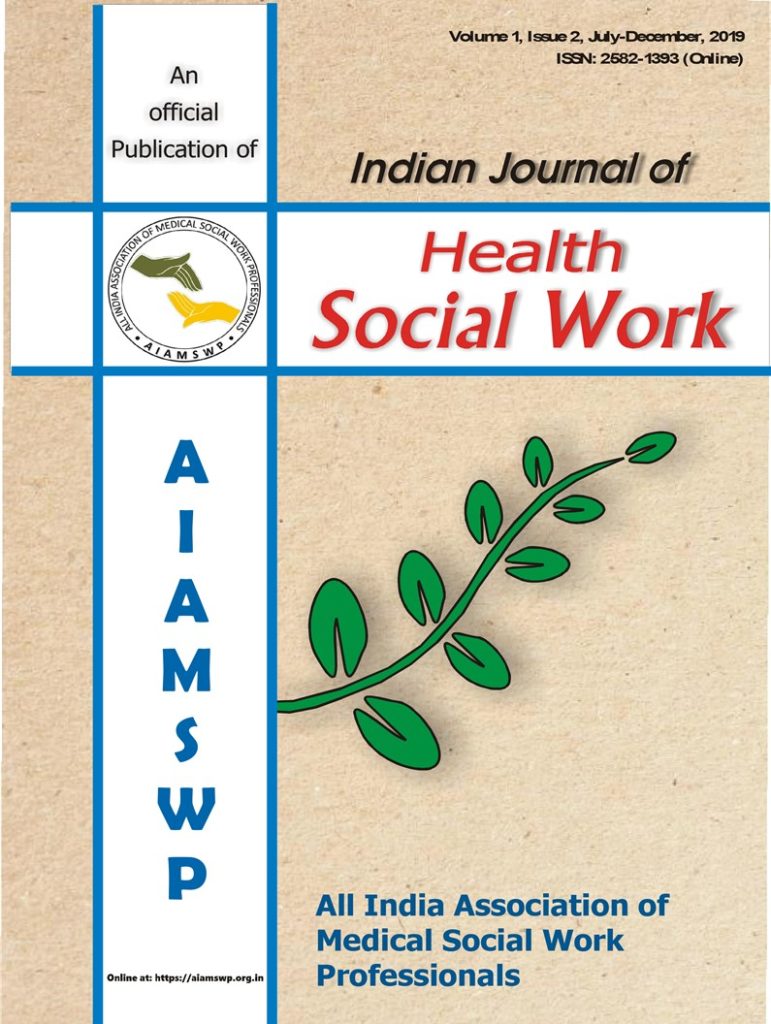Indian Journal of Health Social Work
A CLINICAL CASE STUDY OF INDIVIDUAL WITH OBSESSIVE COMPULSIVE DISORDER (OCD)
ABSTRACT
Background:
Obsessive Compulsive Disorder (OCD) is a severe and debilitating anxiety disorder with a lifetime prevalence of 0.6% in Indian population. It is twice as prevalent as schizophrenia and bipolar disorder, and the fourth most common psychiatric disorder.
Aim:
The present study aims to explore the course of obsessive compulsive disorder and to assess the effectiveness of obsessive compulsive disorder management in alleviating the symptoms associated with obsessive compulsive disorder and to improve the client’s overall functioning.
Research design:
Case study.
Sample and method:
This study was carried out in Karnal at KCGMC and 36 years old married male was included. The treatment plan was formulated according to psychotherapeutic management in which different techniques were utilized to improve the client’s associated compulsive behavior and his beliefs.
Results:
Findings of the assessment showed a significant change in overall functioning. Psychosocial management techniques successfully changed his beliefs, anxiety and remarkably improved his overall functioning.
Conclusion:
On the basis of the results shown in the report it can be determined that psychotherapeutic management is an effective approach to treat obsessive compulsive disorder.
Obsessive Compulsive Disorder (OCD) is a severe and debilitating anxiety disorder with a lifetime prevalence of 0.6% in Indian population. It is twice as prevalent as schizophrenia and bipolar disorder, and the fourth most common psychiatric disorder.
Aim:
The present study aims to explore the course of obsessive compulsive disorder and to assess the effectiveness of obsessive compulsive disorder management in alleviating the symptoms associated with obsessive compulsive disorder and to improve the client’s overall functioning.
Research design:
Case study.
Sample and method:
This study was carried out in Karnal at KCGMC and 36 years old married male was included. The treatment plan was formulated according to psychotherapeutic management in which different techniques were utilized to improve the client’s associated compulsive behavior and his beliefs.
Results:
Findings of the assessment showed a significant change in overall functioning. Psychosocial management techniques successfully changed his beliefs, anxiety and remarkably improved his overall functioning.
Conclusion:
On the basis of the results shown in the report it can be determined that psychotherapeutic management is an effective approach to treat obsessive compulsive disorder.

It’s a matter of great pride for me that All India Association of Medical Social Work Professionals is launching first issue of “Indian Journal of Health Social Work” on the auspicious occasion of 6th Annual National Conference of AIAMSWP, 2019.

